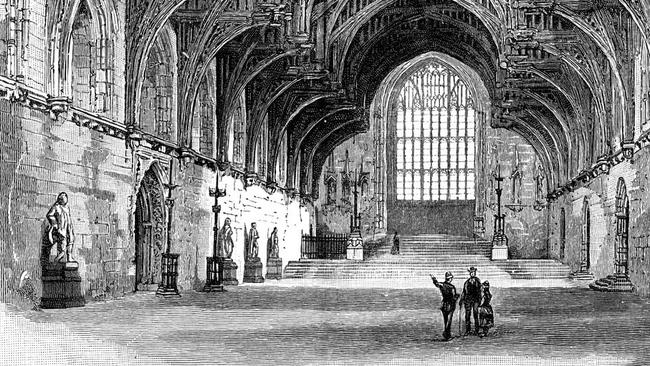England’s first parliament was born out of rebellion
Three quarters of a millennium ago England’s political system took a small, but significant, step toward.

Today in History
Don't miss out on the headlines from Today in History. Followed categories will be added to My News.
Three quarters of a millennium ago today a French-born noble, Simon de Montfort, presided over an extraordinary meeting at Westminster Hall. The meeting was convened by English nobles to discuss curbing King Henry III’s royal power. It was a landmark moment in political history and is considered to be England’s first Parliament.
While there had been meetings of king’s councillors before this that had been called parliaments, this was the first to invite people below baronial rank, including representatives from boroughs and shires. It was also the first to have real authority independent of the monarch. It was to serve as a precedent for later meetings that would evolve into the constitutional monarchy that exists in Britain today.
Henry III had taken power in 1216 at the age of nine, the eldest son of King John. The year before Henry took the throne, John’s barons had rebelled and forced him to sign the Magna Carta (great charter) which curbed royal power.
The young king Henry came to the throne while rebels stilled controlled much of the kingdom and a council of regency ran the country in his name. Powerful barons vied with each other to influence the king, but by the 1230s Henry had established his own authority.
In 1229 a young French nobleman, de Montfort, had arrived to assert his family’s claim to the earldom of Leicester. He was successful and became a favourite of King Henry who arranged for Simon to marry the king’s sister Eleanor in 1238. The marriage sparked a protest by English barons who were angry at not being consulted. Fearing another full-scale rebellion Henry turned against Simon and the earl and his wife fled England.
After going on Crusade in the east, Simon returned to England in 1242 where he was reconciled with the king and then took part in a failed invasion of France. The failed military venture, not his first failure, put Henry at odds again with his barons and Simon was part of a council in 1244 that was convened to mediate in the dispute.
In 1248 Henry appointed Simon to put down a rebellion in English possessions in Gascony but later withdrew the commission after protests from Gascon nobles. Although the two were later reconciled, Henry’s costly and ill-conceived foreign ventures, including his campaign to conquer Sicily and install his son Prince Edmund as monarch, convinced Simon that Henry was unfit to rule alone.
When the bankrupt Henry called a meeting of his nobles and councillors in 1258 to ask for more money, Simon confronted the king over his incompetence. With the support of influential barons he forced the king to agree a commission to recommend reforms. The reforms, known as the Provisions of Oxford, established a baronial council that would advise the king in return for financial support from the barons.
Henry took an oath to abide by the provisions but in 1261, as the barons squabbled, he renounced the provisions and had the Pope free him from his oath. Simon left the country, but later returned to head a rebellion against Henry. In 1263 the rebels restored the provisions, but the barons soon split and the provisions were annulled again after outside arbitration.
Simon then took it upon himself to force Henry submit to the authority of the barons, defeating the king and capturing him and his son, Edward, at the battle of Lewes in 1264.
Simon established a military dictatorship, ruling the country in Henry’s name, and called for a meeting of Parliament. This time as well as inviting the barons, Simon called for influential representatives from shires and boroughs, the more lowly knights and local burgesses. It was a move designed to garner more support, because Simon’s support among the barons was slipping but he was able to rely on support from the broader population struggling under increased taxes.
The Parliament met at Westminster Hall on January 20, 1265, and sat until February 15. However, by calling in borough and shire representatives Simon had distanced his strongest baronial supporter Gilbert de Clare, earl of Gloucester, who defected to the royal side.
Gilbert helped Edward escape and Simon was later defeated then killed at the battle of Evesham.
Although royal authority was reasserted, the increasingly senile Henry gave more power to his son. Under Edward, who took the throne as Edward I on Henry’s death in 1272, parliament met more regularly. In 1295 he would call the “Model Parliament” which included shire and borough representatives and members of the lower clergy.
troy.lennon@news.com.au


